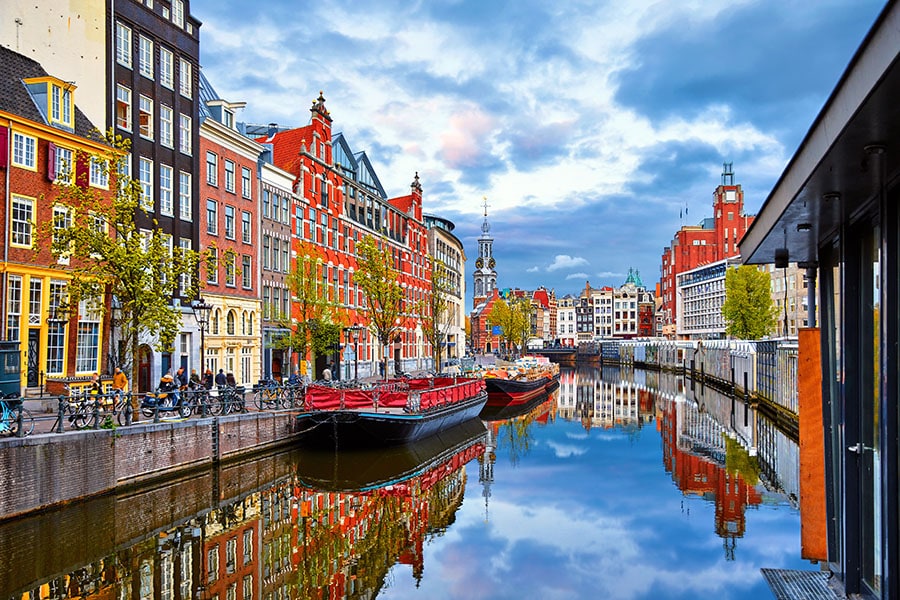
Why visiting Amsterdam will cost you even more in 2024
Amsterdam is set to increase the cost of its tourist tax. This measure is part of its approach to tackling overtourism
 Amsterdam's tourist tax is set to rise further.
Image: Shutterstock
Amsterdam's tourist tax is set to rise further.
Image: Shutterstock
While Venice plans to roll out a long-postponed daytrippers tourist tax in 2024, likely implementing it in spring, Amsterdam is set to increase the cost of its tourist tax. This measure is part of its approach to tackling overtourism.
Amsterdam is renowned for its canals, its cycling culture, its museums and its red light district as well as .. its tourist tax! It's the most expensive one in Europe, and that's not about to change. The city's authorities announced that this tax, which concerns visitors, is set to rise next year to 12.5%. Concretely, this will mean adding 21.80 euros to the price of a night's stay if a traveler pays 175 euros for a room (compared to 15.25 euros now). Currently, the tourist tax in Amsterdam is 7%, plus three euros per night. This lump sum will be abolished if the bill is definitively adopted, reveals the Dutch capital's local television station AT5.
This would allow the city to bring in 65 million euros more from tourist taxes from 2027 onwards. This financial windfall would be used to cope with the extremely high tourist numbers, many of which come from the various cruise ships that include the Dutch port in their itineraries. It appears that the balance is something those in the tourist industry in Amsterdam pay attention to as, this summer, a Visaguide.world study ranked the port as Europe's most welcoming destination for travelers, finding that their well-being is taken into consideration across several indicators.
Amsterdam is set to have received around 20 million tourists by the end of this year. "Tourist tax thus helps us pay for the city's key missions. This allows us to tackle the consequences of overtourism and focus on keeping the streets clean and solving acute problems in neighborhoods and districts,” said Amsterdam alderman Hester van Buren in a municipal statement. The aim is to put in place the necessary strategies to regulate overtourism. In 2017, the city decided to ban the opening of any new souvenir stores.
This isn't the first time that a rise in the tourist tax has been envisaged as a tool to limit the damage caused by overtourism. A regulation that went into effect on January 1, 2020 had the same objective. At that time, the rate was raised to 7% for hotels and camping sites (plus one euro per person per night). At the same time, the rate was raised to 10% for accommodation rentals such as those offered via Airbnb.







